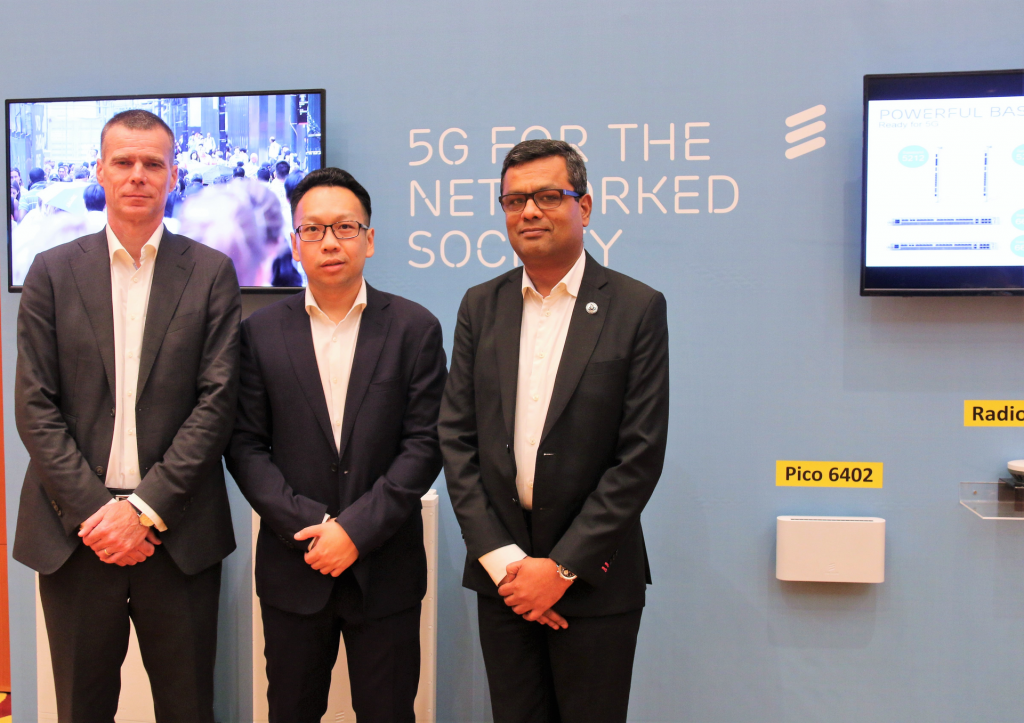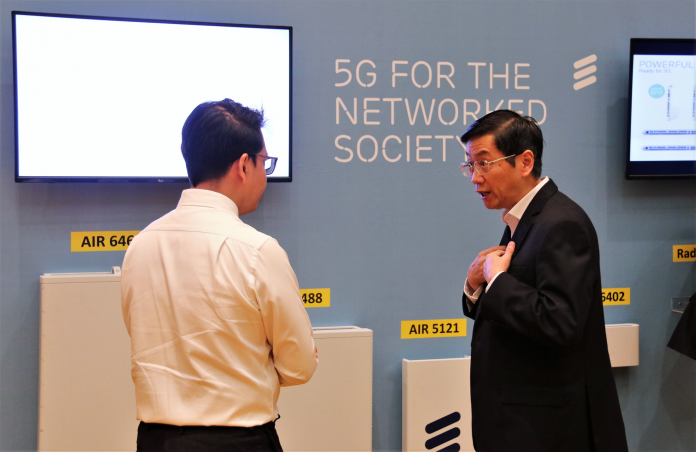Telecommunications company Ericsson are hoping to pioneer the 5G and the Internet of Things (IoT) in Brunei as part of their wider strategy which has already seen them ink over 38 agreements with operators across the globe to introduce the newest mobile wireless standard.
Director of Ericsson’s Brunei branch Gabriel Hii yesterday said at their 10th anniversary of operations in the Sultanate that 5G’s trialing and implementation would be on the agenda for discussion with Brunei’s operators and regulators, although a memorandum of understanding (MoU) has yet to be signed.
“Globally Ericsson is at the forefront of the 5G technology,” said Gabriel Hii at their anniversary celebrations at the Empire Hotel & Country Club earlier today. “5G will not just bring faster mobile browsing and downloads but further enable the IoT.”
Mass deployment of 5G however, is likely only to be seen in 2021 to 2022 according to a general estimate by Ericsson’s head of network solutions for Southeast Asia, Oceania & India, Nitin Bansal.
“We expect the handsets (with the chip) to be available globally beginning December 2019,” said Bansal, who divided 5G’s rollout in two phases; the first in China, the United States, Taiwan, Korea, Japan and parts of Europe, followed by other regions including Brunei in 2021 to 2022.
5G’s introduction will also hinge on the local stakeholders’ view of the community and businesses’ needs. Most telco experts championing 5G expect it to bring IoT to the forefront of the public’s consciousness and integrate the technology into everyday use.
“4G will eventually hit a limit in terms of the devices the network is able to handle,” said Hii, which is expected to happen over the next few years with an increase in devices outside just mobile phones using the internet.
The criteria of what constitutes 5G has yet to be fully formalized, although the Groupe Speciale Mobile Association (GSMA) says it should meet up to 10Gbps connections and a 1000x bandwidth per unit area.
This speed and bandwidth are expected to enable for extensive use of IoT, which sees devices from cars to household items like washing machines to robotics in the medical field all connected to the internet.
For each to function and be controlled remotely, each device is likely to need its own connection that’s made possible through a sim or chip.
“IoT opens up endless possibilities, automation and improved decision making which can take us closer to living in a smart world,” said Hii.
The director added that they were also moving forward with offering IoT based solutions to the Brunei market, and are in talks with the Department of Electrical Services for a smart metering system with a sim to track and pay for electricity, as well as water.
The system provides detailed analytics on usage and credit tracked on a smartphone and also has the ability to send out texts and emails alerting residents on their customizable targets of when it’s time to top-up or when consumption has exceeded pre-set levels.
In the past 10 years, Ericsson’s portfolio in Brunei has most notably included the rollout of 3G connection for mobiles with DST in 2008.
President and country manager of Ericsson Singapore and Brunei, Martin Wiktorin said that Ericson was committed to Brunei and its community through its technology innovations “particularly in 5G, IoT and cloud”.
“By constantly transforming our business portfolio and providing new, innovative solutions, we are enabling the communications industry and other sectors to do better business, increase efficiency, improve user experience and capture new opportunities,” he added.








![[Video] Brunei’s economic diversification journey under Wawasan 2035 Second MOFE Minister YB Dato Amin explains Brunei's divesrificaiton strategy.](https://www.bizbrunei.com/wp-content/uploads/2025/03/Bruneis-future-vision-Wawasan-2035-Thumbnail-100x70.jpg)




